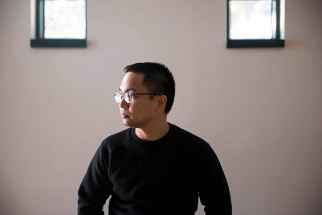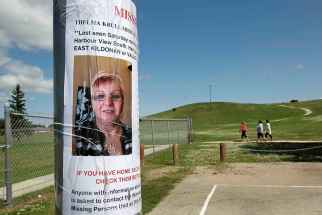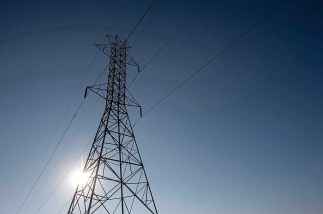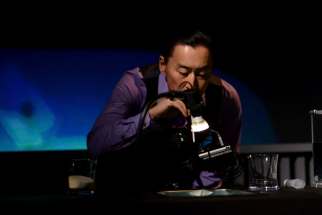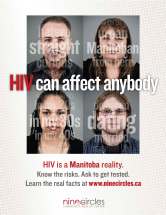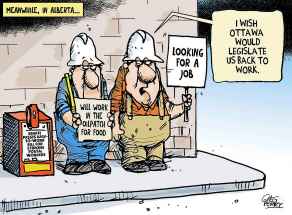Home, strange home Dedicated multifaith volunteers help Yazidi refugees transition from terrorists' quarry in Iraq to safe, but unfamiliar, new life in Winnipeg By: Carol Sanders Posted: Last Modified:
Read this article for free:
or
Already have an account? Log in here »
To continue reading, please subscribe:
Monthly Digital Subscription
$0 for the first 4 weeks*
- Enjoy unlimited reading on winnipegfreepress.com
- Read the E-Edition, our digital replica newspaper
- Access News Break, our award-winning app
- Play interactive puzzles
*No charge for 4 weeks then price increases to the regular rate of $19.00 plus GST every four weeks. Offer available to new and qualified returning subscribers only. Cancel any time.
Monthly Digital Subscription
$4.75/week*
- Enjoy unlimited reading on winnipegfreepress.com
- Read the E-Edition, our digital replica newspaper
- Access News Break, our award-winning app
- Play interactive puzzles
*Billed as $19 plus GST every four weeks. Cancel any time.
To continue reading, please subscribe:
Add Free Press access to your Brandon Sun subscription for only an additional
$1 for the first 4 weeks*
*Your next subscription payment will increase by $1.00 and you will be charged $16.99 plus GST for four weeks. After four weeks, your payment will increase to $23.99 plus GST every four weeks.
Read unlimited articles for free today:
or
Already have an account? Log in here »
Hey there, time traveller!
This article was published 30/11/2018 (2571 days ago), so information in it may no longer be current.
After escaping Islamic State, genocide and refugee-camp perils, rescued Yazidis in Winnipeg are making up for lost time — having babies, raising families and trying to set down roots in a strange place that’s strangely welcoming to a people who’ve faced centuries of persecution.
Some of their stories have been in the news. The photo of an emaciated, injured 12-year-old boy named Emad Tamo travelled around the world after he was rescued from IS to be reunited with family in Winnipeg. He was back in the spotlight in February when a much healthier-looking Emad met with Prime Minister Justin Trudeau during his visit to Winnipeg. Faeza Mejo has shared her story of being kidnapped, bought and sold 10 times by her IS captors and getting rid of the tattoo left from that time.
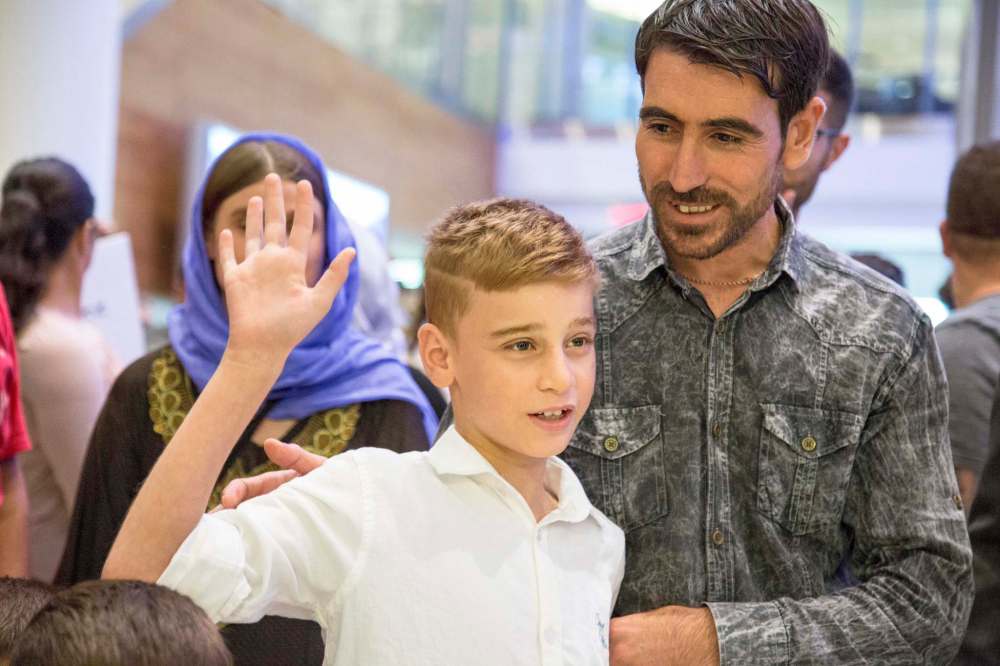
But who are the Yazidis, and how did Winnipeg end up being home to one of the little-known ethnic minority’s largest enclaves in Canada?
They’re from northern Iraq, practise one of the world’s oldest monotheistic religions and have faced centuries of persecution. After surviving an estimated 74 genocides, there are just a million Yazidis worldwide.
In 2014, when the IS invaded their towns and cities, the Yazidis were targeted for genocide. In Winnipeg, the 200 Yazidi refugees who were rescued from persecution more than decade earlier sounded the alarm about another potential slaughter.
Winnipeg’s Jewish community responded, creating a coalition of faith groups and volunteers to raise awareness and lobby the federal government to get them to safety in Canada. As a result, 1,217 Yazidis have been admitted to Canada in the last two years, 367 of whom resettled in Winnipeg. More than half — 189 — were under the age of 18. Operation Ezra alone has privately sponsored 55 Yazidis and is helping dozens of government-sponsored families in the city. Winnipeggers from all over the city have stepped up to help, including members of the next generation.
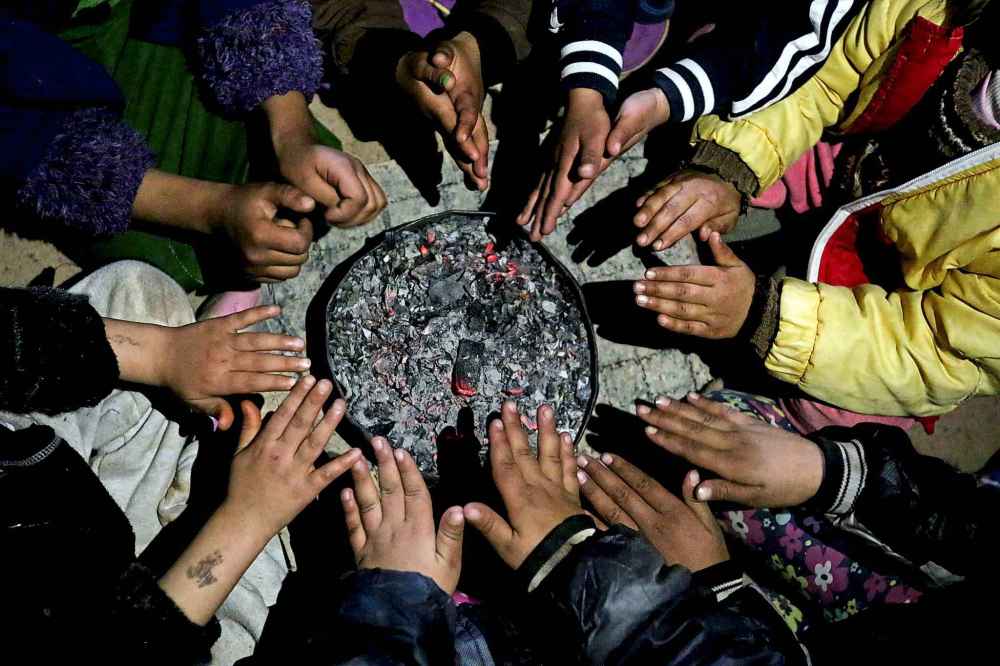
Students from seven elementary schools in Winnipeg collected winter clothing for a free “warehouse sale” last Sunday. Volunteers, among them resettled Yazidis, spread out clothing, coats and boots in donated warehouse space and transported 120 members of the Yazidi community there to find items to get them through a harsh Winnipeg winter.
The focus and drive of the schoolchildren who helped make it happen impressed Operation Ezra co-ordinator Michel Aziza.
“Many kids aged 8-12 knew exactly what they wanted to do and how much they wanted to help people in need,” he said.
The Yazidis story has moved people around the province and from many walks of life. Farmers near Portage la Prairie have shared their land with the uprooted agrarian folk starving to work the soil again. Health-care workers in Winnipeg have gone out of their way to help Yazidi women when they’re at their most vulnerable, during childbirth. The Yazidis who ended up in Winnipeg know one thing for sure.
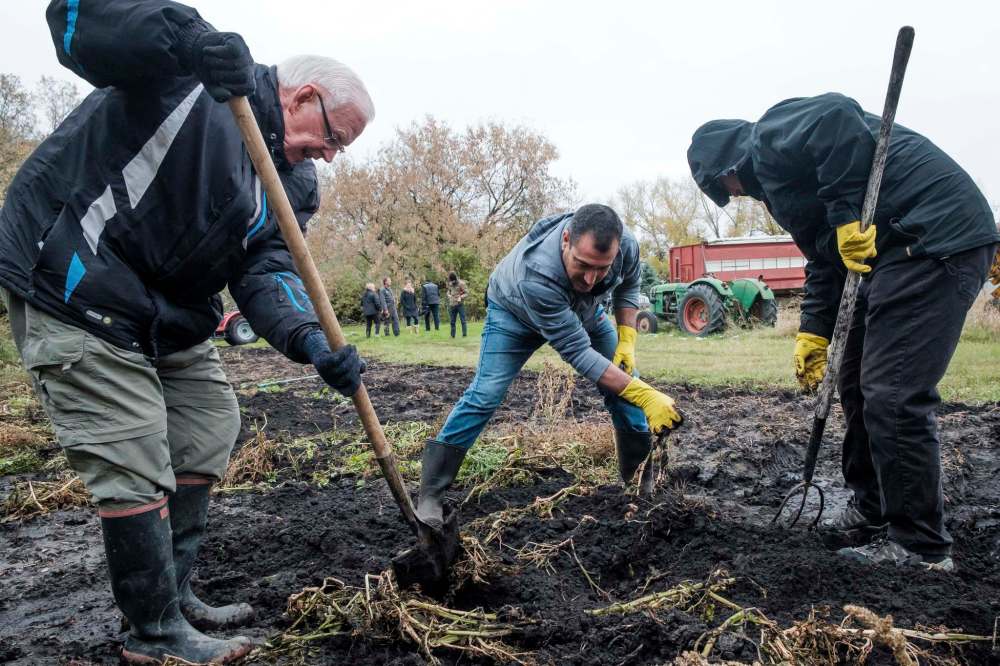
They’re the lucky ones.
A Nov. 6 report by the United Nations mission to Iraq and the Office of the High Commissioner for Human Rights said that more than 200 mass graves, each holding as many as 12,000 bodies, have been found in areas of Iraq once controlled by IS. It called the sites a “legacy of terror.”
During its three-year rule, IS terrorized local residents, often releasing videos of executions of people. The militants also went after members of ethnic and religious minorities, including Christians and Yazidis. In the Yazidi homeland of Sinjar, 69 mass graves have been identified, Iraqi officials said.
The graves could provide valuable forensic evidence, but the scale of the job has made collections daunting. Few criminal investigations have been conducted. The deaths occurred in what the United Nations called systematic and widespread violence, a campaign that “may amount to war crimes, crimes against humanity and possible genocide.”
The Yazidis who made it safely to Canada are desperate to have close relatives they left behind join them.
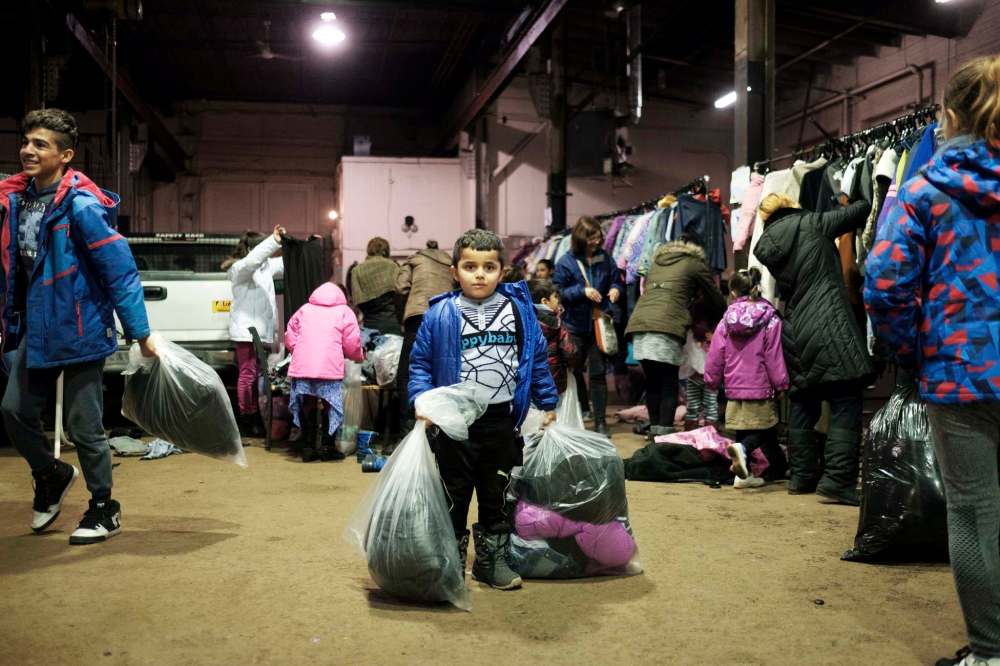
Under the One-Year Window provision of the Immigration and Refugee Protection Act, a permanent resident who arrives in Canada as a refugee within the last year can bring to Canada family members who were part of their permanent residence application overseas but could not travel with them to Canada.
Many of the 302 government-assisted Yazidi refugees who’ve arrived in Winnipeg qualify to bring their loved ones, Aziza says.
“Some have submitted applications, most have not. Most of the applications submitted have been rejected for what I would consider to be technical reasons.
“We have an example of a seven-year-old boy who just escaped from (IS). He has two sisters in Calgary who have submitted an application under the One Year Window program.”
Because provision allows for spouses and children of refugees and not for siblings, the application was turned down, Aziza says. Another technical reason for rejecting an application occurs when someone didn’t identify the family member on their original application because they believed the relative was dead.
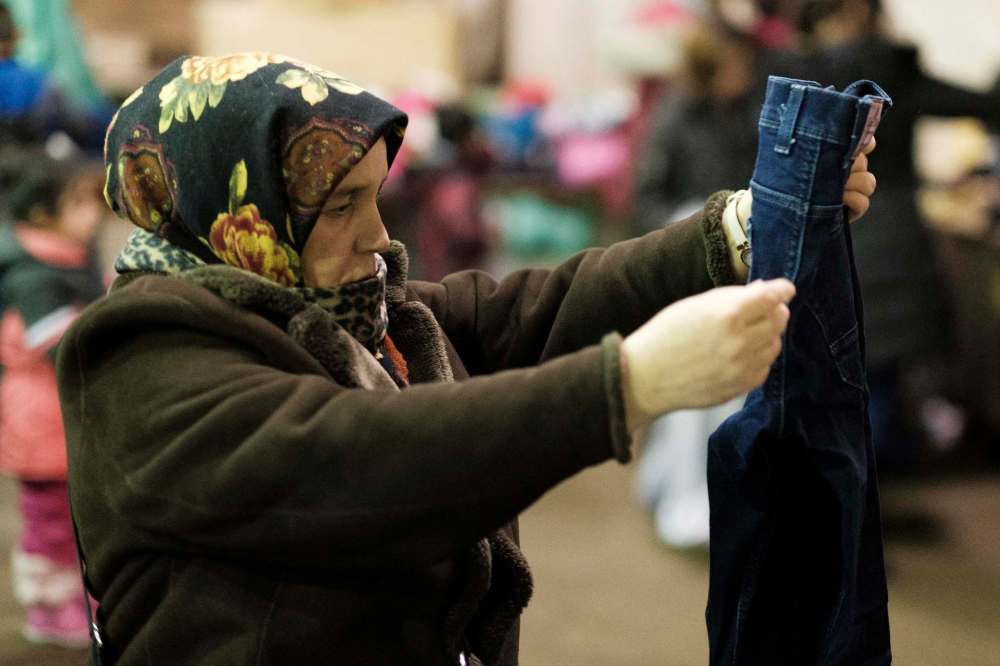
In a statement Thursday, Immigration, Refugees and Citizenship Canada said it “understands the importance of, and remains committed to, keeping family members together” and works with service provider organizations to reunite families. It says IS survivors face “unique challenges” with immediate family members potentially remaining in captivity beyond the One-Year Window time frame. In such cases, it will make special provisions and extensions to the One-Year Window, it said..
In Winnipeg, Aziza says Operation Ezra has been in touch with 44 families and identified approximately 270 children and/or spouses they want to reunite with, including the extended families of those children and spouses. They can’t just get on with their lives and erase their spouses and kids from their memories, he says.
“We have approached (IRCC) with this information and made the argument that integration in Canada cannot be fully successful unless and until the families are complete again.”
Thus far, they have been unsuccessful.

“The government simply does not seem to have a program or a plan to reunite these broken families,” Aziza says.
“We are not talking about thousands of people here. Rather, we are talking about hundreds of people. It is absolutely practical and reasonable to expect these reunifications to not only happen but also to be expedited. The trauma experienced by most of the (government-assisted refugees) is so deep and the inability to reunite only magnifies the integration challenge.”
carol.sanders@freepress.mb.ca
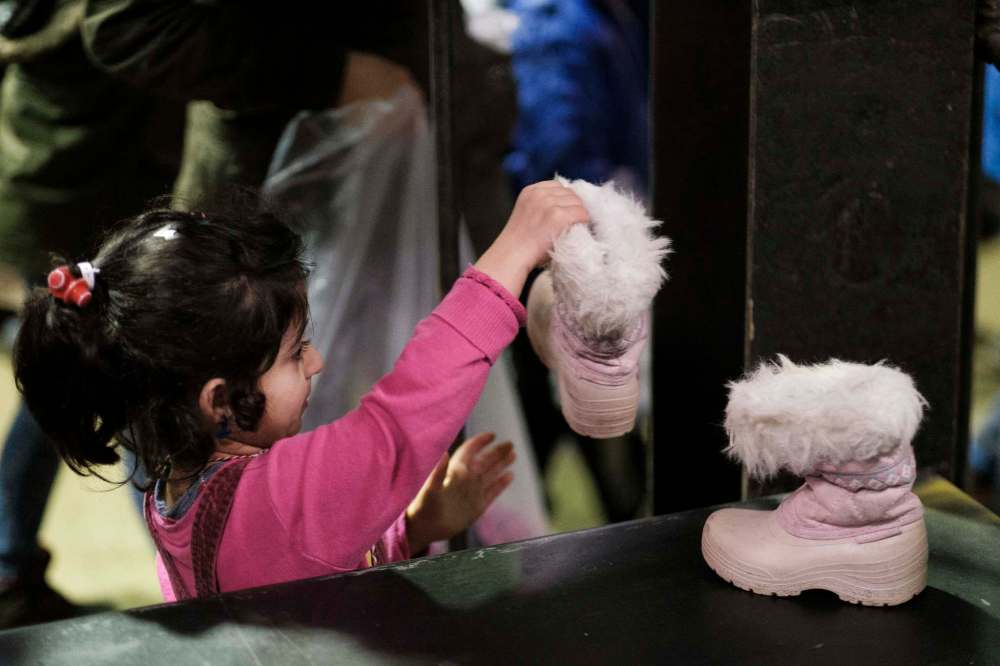
Special delivery for newcomers’ and their babies
Sponsored refugees taken aback by kind, caring doctors, nurses and others in health-care system

Not that long ago, they were hunted down by terrorists and targeted for genocide.
Today, now that 367 Yazidi refugees are safely nestled away in Winnipeg, they’re nuzzling the many newborns who’ve since arrived.
In the two years since the first family was welcomed by the Jewish community-led Operation Ezra, nine Yazidi babies have been born in Winnipeg, says Nafiya Naso, a Yazidi social worker with Jewish Child and Family Services.
The ancient, farm and family oriented minority is thriving in this prairie burg, says Naso, who arrived in Manitoba as a Yazidi refugee when she was a child.
The mothers who’ve given birth here marvel at a system that delivers more help for moms and babies than they’ve ever seen.
“You can’t compare the care here to there,” says Safya Maroo, 34. She has three children, the youngest of whom is Sam, who was delivered by caesarean section in August at the Women’s Hospital in Winnipeg.
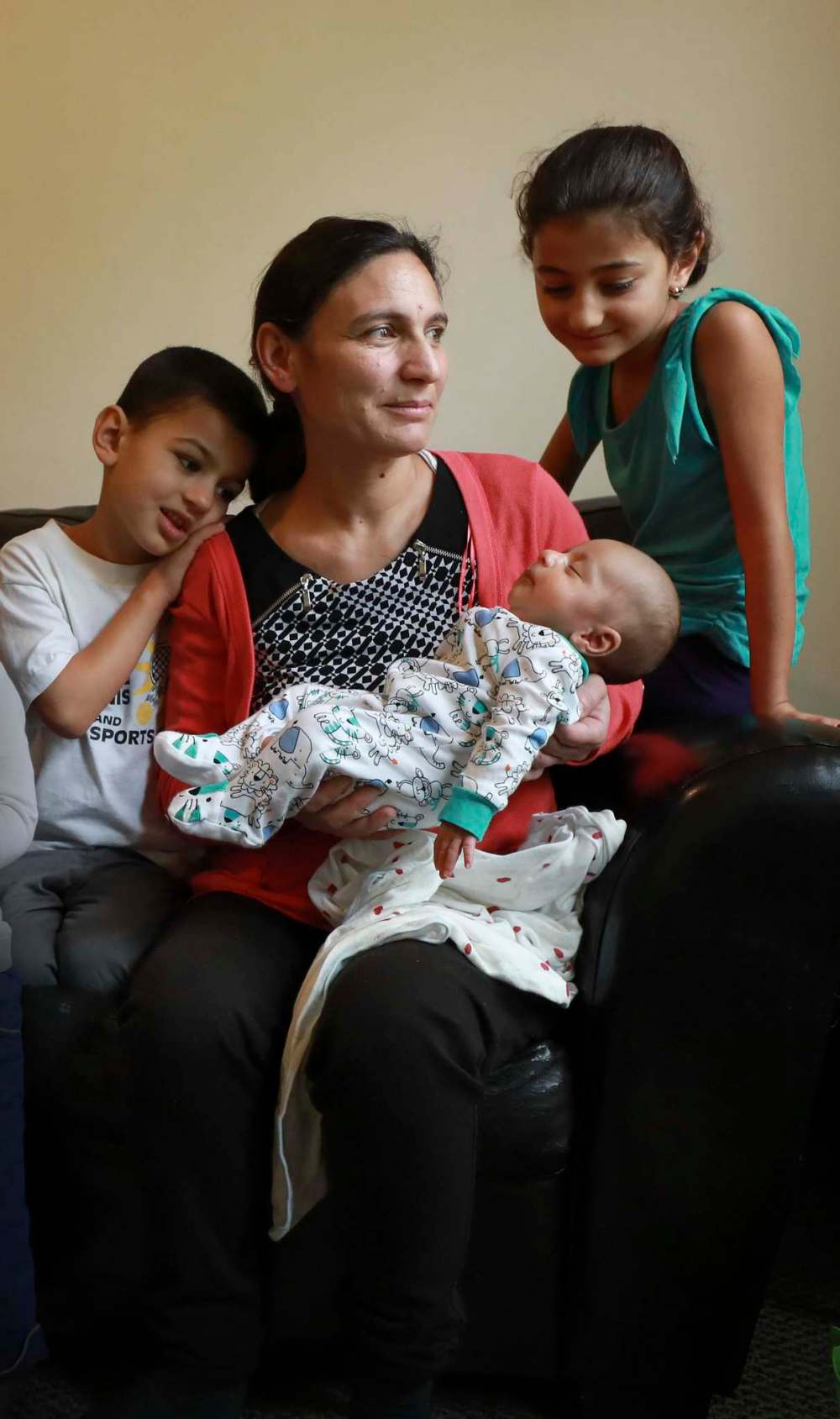
“It was stressful but, at the same time, I felt at home,” she says through an interpreter. “The medical team was so amazing and super nice. They went out of their way to make sure I understood everything.”
While waiting for Sam to arrive, she had regular checkups and attended prenatal classes for the first time, she said. The experienced mom said she learned about caring for herself and nutrition and what to eat and what not to eat.
“Back home, there was no such thing,” says Maroo, who has taken some full-time English language classes but relies on the help of an interpreter during an interview with the Free Press. “It was really good. I found it helpful.”
What stood out for Maroo, whose family was privately sponsored by Operation Ezra, was the kindness of the Women’s Hospital staff, especially the nurse who helped her fill out her paperwork, she says.
It’s a far cry from the refugee camp in Iraq where Basima Grnos gave birth to her daughter Navin four years ago.
“The doctors don’t support you,” Grnos, 26, says through an interpreter. “You give birth and you’re on your own.”
Her next daughter, Avin, was born in Winnipeg in September. The medical checkups and care she received in Canada was nothing like her treatment before and after Navin was born.
“It was really difficult,” recalls Grnos, whose family was rescued by Canada as government-assisted refugees. The refugee camp hospital was clean but not very caring, Grnos said of Navin’s birth. “She was born at 12:30 a.m. and they literally kicked you out of the hospital at 3 a.m.”
Grnos says she stayed in Women’s Hospital for four days for Avin’s birth. “You can’t compare the care.”
The moms also talked about how similar and different things are here once their babies are born.

Some of the traditions of the ancient Yazidi faith are similar to those practised by religions it predates — including Judaism, Christianity and Islam. Boys are circumcised, says Maroo, whose baby Sam had the surgery on Sept. 11.
In Yazidi communities, a woman who gives birth is expected to stay home for 40 days, Naso says. Extended family members have to cook and clean and help with the newborn for those 40 days.
“On the 40th day, you have to get a tablespoon and put 40 tablespoons of water on the baby’s head,” in a rite similar to a baptism, she says.
Most people “back home” will take their children to the Lalesh temple in northern Iraq, where the religious leader performs a blessing with holy water. At the end of the 40 days, the mother is expected to cook a meal and share it with neighbours, close family and friends to celebrate.
When it comes to child-rearing in Canada, it’s much different. Instead of living in a tight-knit agrarian community where everyone knows everyone, they’re in apartments and houses in an urban centre with a continental climate.
“It’s definitely harder here, but at the same time I feel I’m more a part of their lives,” says Maroo. “Back home, (the children) go outside in the morning and wouldn’t come back till dinner time. Here, it’s a better relationship. I feel closer to my kids than when I was back home.”
In the winter, she and her husband try to keep them busy “so they’re not always watching TV.”
“When it’s nice outside, we take advantage of it,” she says.
The climate has been a big challenge for Grnos, who spent her first winter pregnant in Winnipeg.
“It was cold and rough,” she says.
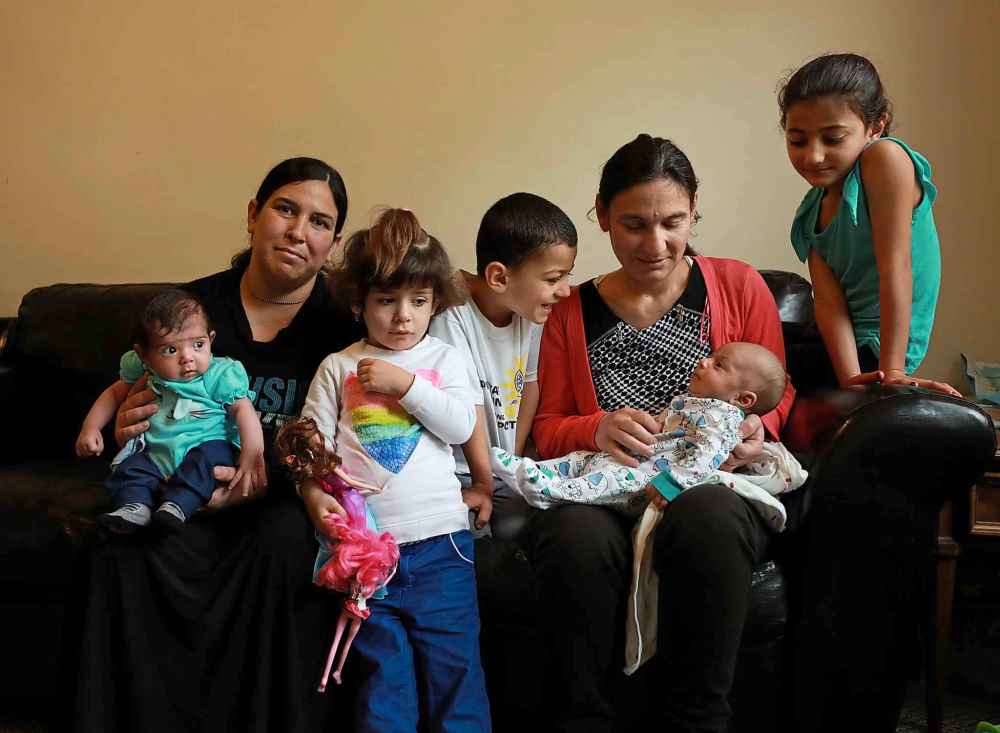
She was enrolled in a newcomer-orientation program downtown before the baby was born and struggled to get there and back by bus in the cold. She says she and her husband look forward to having more children — but not for a while.
Maroo says she and her husband are breaking with Yazidi tradition of having big families. She has eight siblings and Grnos has nine. The two moms said they started doing farm work when they were very young and had limited education.
Girls didn’t go beyond Grade 6, Grnos says.
Their homes were made of mud bricks, and generators provided electricity for an hour or two a day “if you’re lucky,” says Maroo.
Both expect better lives for their newborns.
“Just to be kids — to have a childhood,” Maroo says. “When then they grow up to be adults, they’ll have a good education.”
Grnos says she’s not worried about her children’s future for one reason.
“Human rights exist here.”
carol.sanders@freepress.mb.ca
Refugees left the farm, but farm never left them
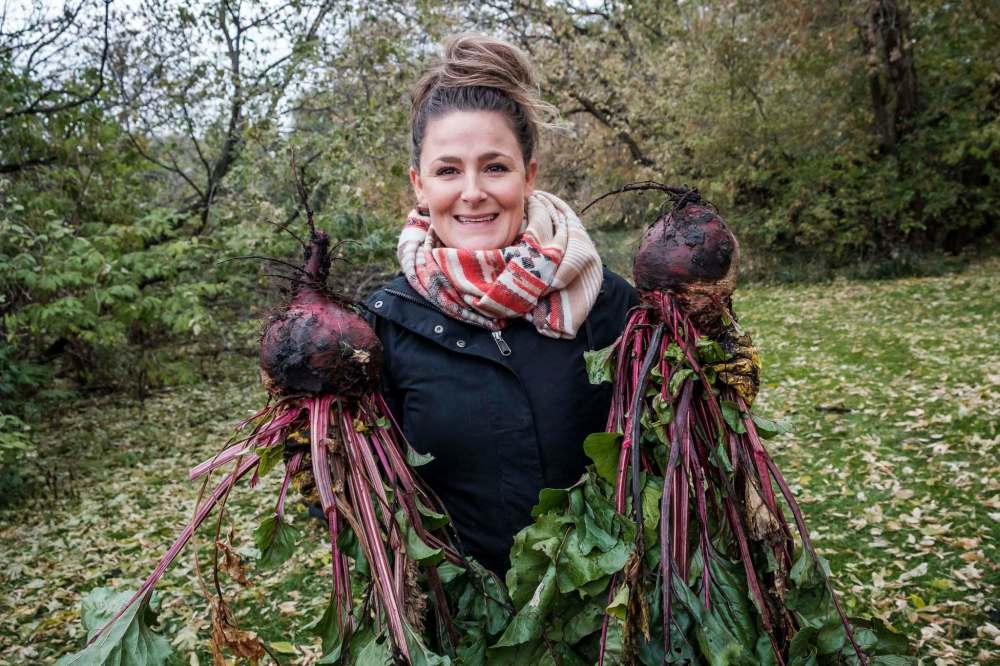
WEST OF PORTAGE LA PRAIRIE — A garden plot here helped nourish the body and soul of Yazidi refugees in Winnipeg hungry to get back to the land.
On Thanksgiving Sunday, more than a dozen former farmers from Iraq and volunteers with Operation Ezra dug up more than 300 kilograms of potatoes they planted in June at a family farm west of Portage la Prairie.
It’s a good, familiar feeling for Dawood Murad.
“I miss the farm,” said Murad, who had a market garden that produced potatoes, tomatoes, cucumbers and zucchini and other veggies to feed his family before being forced to flee their town in northern Iraq.
Since arriving with his wife and seven children in February 2017, Murad is adjusting to Winnipeg but struggles with letting go of the farm life he left behind.
“I miss it dearly,” he said through an interpreter. “I’m busy with the kids now and driving them here and there and back and forth.”

Digging up the spuds in the rich, black gumbo on an October afternoon was a chance to get together with the guys and gather up the russets they’ll share with dozens of Yazidi families back in Winnipeg.
The idea for the potato patch came from Megan Sodomsky, a volunteer with Operation Ezra — a multifaith mission led by Winnipeg’s Jewish community that has privately sponsored 63 Yazidi refugees in the last two years. It’s also helping dozens of government-sponsored Yazidi refugee families in Winnipeg and providing food relief packages to them.
“I love the Yazidis,” said Sodomsky, who’s volunteered at weekly informal English classes at Temple Shalom in Winnipeg and gotten to know many of the Yazidi families who farmed in Iraq. “I’ve been working with them since they arrived.”
The children are immersed in school full time, learning English and quickly integrating in the community. The parents have fewer opportunities to feel connected. Men who farmed in a hot, dry climate and had gardens to feed their families struggle to find new roles living in the city, said Sodomsky, whose own roots are on the farm. Her dad Ross Tufford lives in Portage and farms with his brother Roy Tufford, who lives at the family farm near Portage. Next to the farmhouse is an 8,000-square-foot garden.
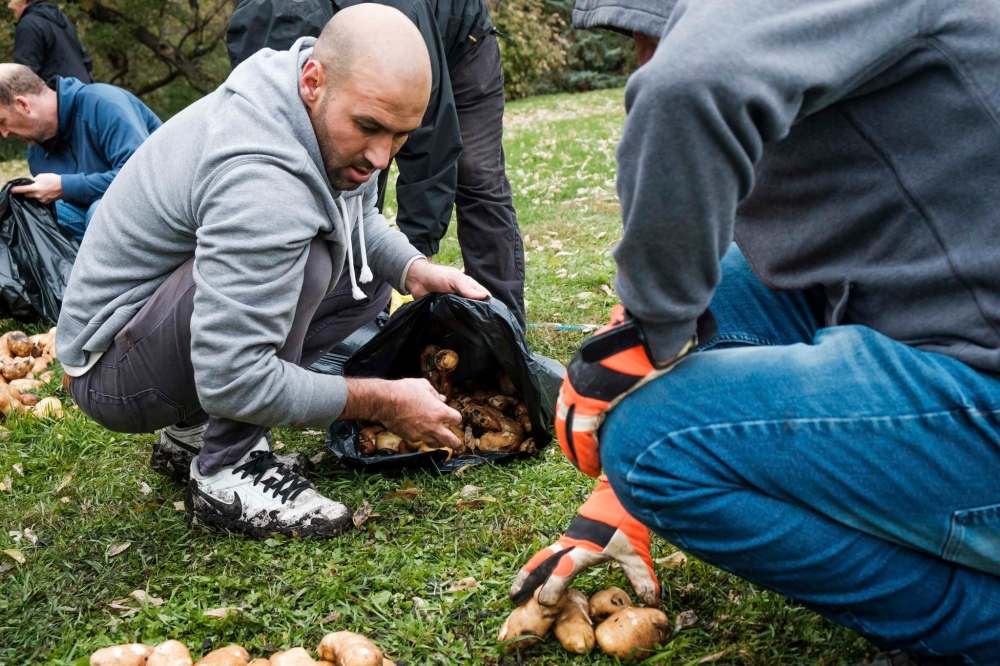
“This was our family garden when we were kids,” Ross Tufford said, hosing soil from piles of potatoes it produced. It was barely in use until this past summer, when his daughter got the idea to take the soil-starved Yazidi farmers stuck in the city to the family farm where they could plant and harvest a potato patch to feed their families.
It’s great,” said Tufford who, with his brother, spent part of the weekend helping the Yazidi farmers harvest the potatoes.
They decided to plant potatoes because they’re low maintenance, said Sodomsky. In June, they scrambled around Winnipeg garden centres that still had seed potatoes in stock. Vanloads of Yazidis and volunteers travelled to the farm to plant about 300 seed potatoes.
“It was quite a crowd of people,” recalled Tufford.
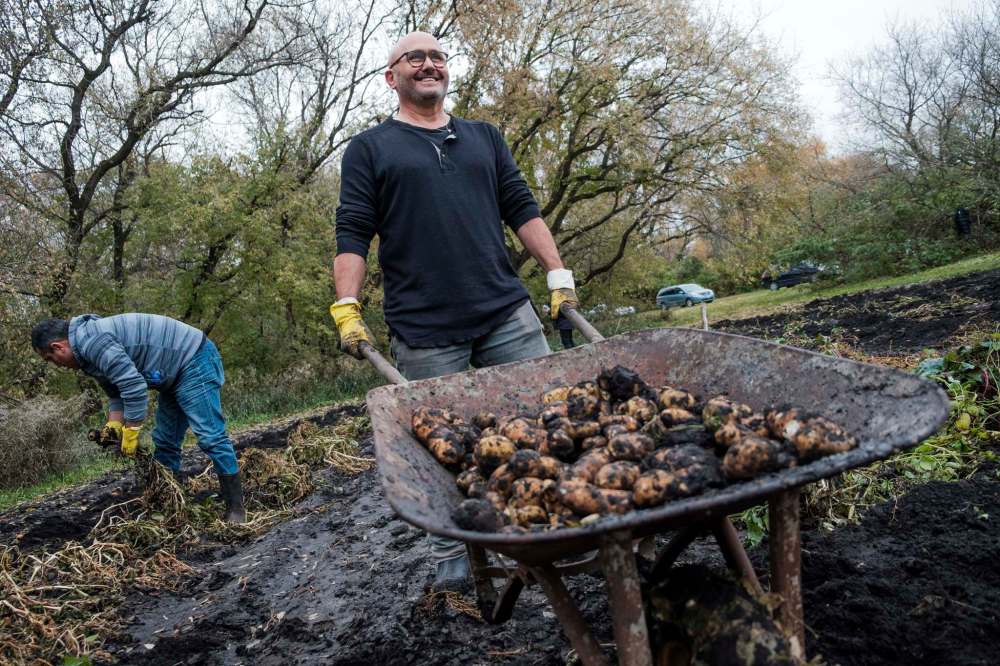
Yazidi men, women and teens helped plant and hill the spuds. Four months later, on a frigid fall day, just the men returned for the harvest with the help volunteers. They weren’t disappointed.
The ground was full of big, red spuds. Digging for them in ankle-deep soil was a new adventure for Kent Klostreich.
“I’m a city kid,” the Operation Ezra volunteer said as he hunted for tuber treasure. “I don’t know anything about agriculture.”
Klostreich belongs to the Unitarian Church, which helped sponsor the Yazidis. He’s volunteered Thursday nights with the English-language classes for Yazidi adults. “The Yazidi story is pretty compelling,” he said. “Most people still don’t know about them.”
“Anything I can do, I’m happy to help.”

Rev. John Howson with Bridges for Peace, one of 28 organizations that joined Operation Ezra to privately sponsor and resettle Yazidis, was there too.
“We just want to help,” said Howson. He said his faith compels him to help people. “We need to do more.”
carol.sanders@freepress.mb.ca
Teens shocked by cold temperatures, soothed by warm hearts
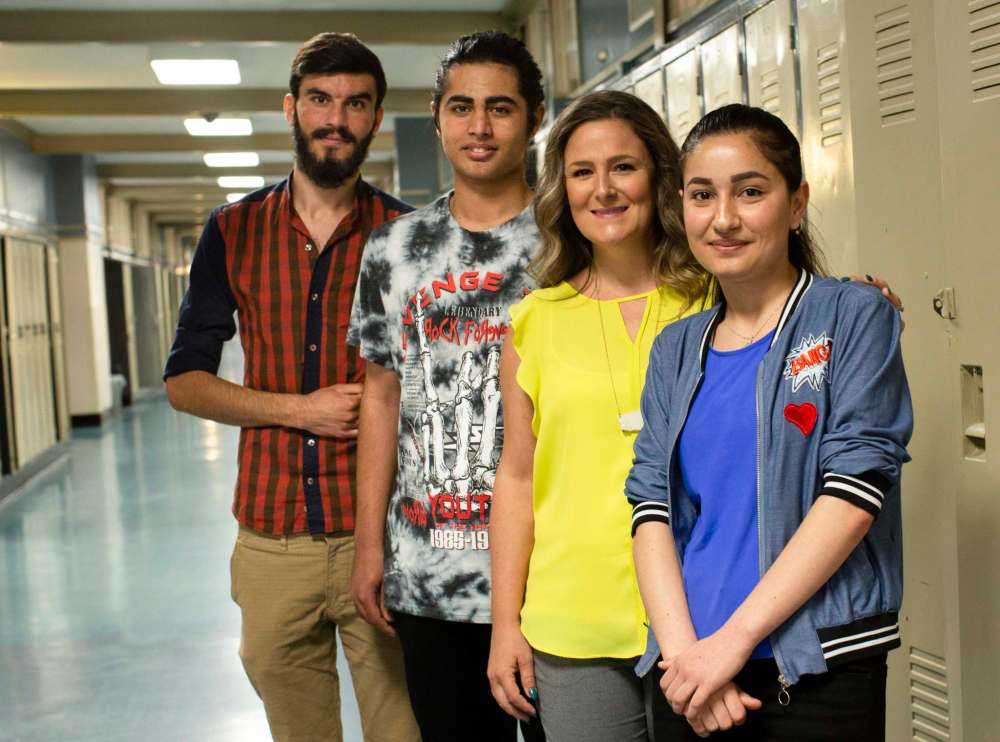
With the threat of genocide and upheaval interrupting their teen years, you’d think moving to a strange land on the other side of the world might make matters worse.
But for three Yazidi youths in Winnipeg who lost everything when they were chased out of Iraq by Islamic State terrorists, this cold but solid, friendly place is full of possibilities they could never have imagined.
Diyar Salih, 21, will never forget the day he arrived in Canada: “It was horrible,” he says, recalling the bitterly cold day his family arrived in December 2016.
“To be honest, it was so cold but the people around me were so kind.”
Amin Murad, 15, arrived in February 2017. It was still cold and Salih, whose family arrived earlier and lives nearby, showed the teen the ropes and how to get to school by bus.
“I was surprised people were so nice,” says Aida Naso, 16. As a member of the Yazidi minority that’s faced 700 years of persecution, she wasn’t expecting the kind of welcome they received as refugees sponsored by the Jewish-led multifaith organization Operation Ezra.
Salih, Murad and Naso attend Grant Park High School, which has 200 Inclusive Education students who are newcomers from around the world.
“It was new, it was different,” says Murad, who missed a big chunk of schooling as a refugee on the run. “We didn’t go to school for two years.”
When they did attend school in their small Yazidi farming communities, the classrooms and equipment were basic.
“It was a simple life,” says Salih.
“We didn’t have big houses or big cars like here, but we were happy,” says Naso. “It was nice,” she says.
When IS terrorists pushed toward their northern Iraqi region of Sinjar in 2014, the unarmed Yazidis felt trapped, said Diyar. They didn’t trust the Kurdish militia to protect them and they knew that IS wanted to wipe them out.“To be honest, it was so cold but the people around me were so kind”– Diyar Salih
“We knew something was going to happen and we’re not safe without help,” says Salih. “We were praying we’d be OK — we don’t fight with anyone. We don’t hate anyone. Then things became worse and worse.”
He said the Kurdish army controlling the area told them to stay and they’d protect them.
“Then the Kurdish army just left,” he says.
They could see the IS flags coming but escaping them was tough because few families owned vehicles. “One of our neighbours, he picked us up. He had 31 people riding in his pickup truck.”
Some people managed to escape to Kurdistan but most headed up Mount Sinjar on foot. “We had nothing to eat or drink,” Salih says.
Until the genocidal terrorists were on their doorsteps, Naso says making a plan to flee was both logistically and emotionally daunting.
“My dad was the only one with a passport and my grandpa didn’t want to leave,” she says.
They ended up leaving in a hurry and scrambling to find shelter as they fled — sleeping in a “garden” for five days and an abandoned school for five days. Murad says his family walked for days and the adults were frantic because one of his cousins had diabetes and there was nothing to eat but leaves.
When they reached refugee camps in Turkey, they weren’t sure how long they’d be there before they could go home. None of them knew anything about Canada or that it would be the place they’d end up.
“It’s a nice country,” says Salih.
“It’s a cold country,” says Murad, recalling a chilly fall in 2017 learning to play football with the Grant Park High School team as a receiver.
Looking back on the warm, simple existence they enjoyed back home, they’re now realizing how few opportunities there were for young people.“My dad was the only one with a passport and my grandpa didn’t want to leave”– Aida Naso
“There was no future there for us,” Salih says. “You’re not going to get anything or get anywhere.”
For persecuted Yazidis with no hope of upward mobility, Canada is giving them a crack at reaching their true potential, says Salih, who got his driver’s licence and bought a minivan to transport family and friends with money he earned at his part-time job at Hermano’s restaurant.
He also worked with youths at Newcomers Employment and Education Development Services as a community connector over the summer.
“Here there’s freedom of thought, religion and mobility,” he says.
Seeing people in the Pride parade was a good example, says the young man who comes from a part of the world that persecutes homosexuality.
“Honestly? It was strange but, at the same time, whatever people believe is for themselves to decide,” he says.
The Grant Park students say they’re fortunate to be alive and in Canada with boundless opportunities.
“We’re safe but 600,000 in Iraq now aren’t,” says Salih, who wishes he could help the people left behind. “They’re struggling every day… one day I hope I can be a voice for my community.”
“We’re so blessed,” says Naso, whose world has opened up with friends born in Canada and “and all around the world,” as well as career options she never imagined.
“I want to be a police officer, I want to help people. Back home they’re just eating and sitting but Canada is different.”
A female officer with Winnipeg Police Service came to speak to her Yazidi girls’ group about her job and Naso was impressed.“Here there’s freedom of thought, religion and mobility”– Diyar Salih
Murad wants to be a Yazidi history professor. His millenniums-old ethnocultural group needs Yazidi experts teaching it, he says.
Their parents, meanwhile, are nowhere near as fluent in English as their kids, says Megan Sodomsky, an Operation Ezra volunteer, who has also helped find and furnish homes and scout jobs for the newcomers.
The group runs weekly English-language lessons for the Yazidis at Temple Shalom. Close to 70 Yazidis and 15 to 20 volunteers gather weekly at the Grant Avenue synagogue for the informal English classes attended by adults and high school students.
Sodomsky, a member at Shaarey Zedek Synagogue, and other volunteers encourage them to keep trying, Naso says.
“She’s kind, she’s helped us a lot.”
Attending high school all day and language classes at night was a lot to take in at times, Salih says.
“Sometimes you get tired of class and she makes you smile.”
The fact that they’re being helped by Operation Ezra volunteers — many of whom are Jewish — is not lost on Murad, the budding historian.
Where they came from in the Middle East, the only group as reviled as much as the Yazidis was the Jews, he says.
“To call someone a Jew was an insult.”

carol.sanders@freepress.mb.ca

Our newsroom depends on a growing audience of readers to power our journalism. If you are not a paid reader, please consider becoming a subscriber.
Our newsroom depends on its audience of readers to power our journalism. Thank you for your support.

